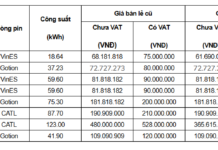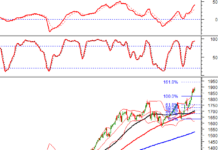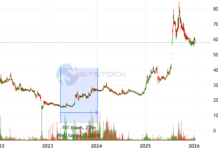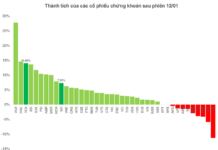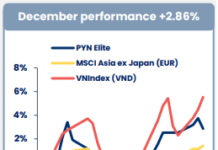Mrs. Tran Mai Thanh, 54 years old (born March 1970), is currently an employee at an educational institution. She joined the industry in 1994 and started contributing to social insurance at the same time. So far, Ms. Thanh has 30 years of social insurance contributions. By 2027, she will officially retire and receive the maximum pension (75% of the average salary based on social insurance contributions). However, Ms. Thanh wants to retire early while still receiving the maximum pension. What should she do?

Consulting citizens on social insurance policies
Vietnam Social Insurance (VSI) states that the conditions for enjoying a pension are stipulated in Article 169 and Clause 1, Article 219 of the 2019 Labor Code, along with Decree No. 135/2020/ND-CP.
Accordingly, from January 1, 2021, the retirement age for employees in normal working conditions is 60 years and 3 months for men and 55 years and 4 months for women. Subsequently, the retirement age will increase by 3 months every year for male workers until it reaches 62 years in 2028, and by 4 months every year for female workers until it reaches 60 in 2035.
Employees can retire up to 5 years earlier than the prescribed retirement age if they have contributed to social insurance for at least 20 years and meet one of the following four conditions.
First, they have at least 15 years of engagement in heavy, toxic, dangerous, or especially heavy, toxic, and dangerous occupations or jobs. Second, they have at least 15 years of working in areas with particularly difficult socio-economic conditions.
Third, they have a total of at least 15 years of engagement in heavy, toxic, dangerous, or especially heavy, toxic, and dangerous occupations or jobs, in addition to working in areas with particularly difficult socio-economic conditions. Fourth, they have a reduction in working capacity of 61% or more.
Employees can retire up to 10 years earlier than the prescribed retirement age if they have contributed to social insurance for at least 20 years and meet one of the following two conditions: They have at least 15 years of working in coal mining in pits or have a reduction in working capacity of 81% or more.

For female workers retiring from 2018 onwards, the rate is 15 years. After that, for each additional year, employees will be calculated with an additional 2%, with the maximum being 75%.
Additionally, employees will not be subject to age restrictions if they have contributed to social insurance for at least 20 years and meet one of the following two conditions: They are infected with HIV/AIDS due to occupational accidents or risks; or they have a reduction in working capacity of 61% or more and have at least 15 years of engagement in particularly heavy, toxic, and dangerous occupations or jobs.
Regarding pension levels, VSI states that according to the 2014 Social Insurance Law, for women who have contributed to social insurance for 15 years, the pension rate is 45%, and for each additional year, the rate increases by 2%. The maximum rate is 75%.
In the case of employees retiring early due to reduced working capacity, the benefit rate will be reduced: For each year of early retirement, 2% will be deducted from the total benefit rate.
If the retirement age has a fractional part of up to 6 months, the reduction is 1%, and if it is over 6 months, there will be no reduction in the percentage due to early retirement.
The condition for female workers to enjoy the maximum pension rate is to have 30 years of social insurance contributions. An employee born in 1970, working in normal working conditions, and having 30 years of compulsory social insurance participation, if she continues to participate in social insurance until she reaches retirement age in August 2027 (57 years and 4 months), will have a total of 34 years of social insurance participation.
Although she has excess years of contribution, according to current regulations, each year of early retirement will result in a 2% reduction in the benefit rate. In this case, to receive the maximum pension rate of 75%, the employee needs to continue contributing to social insurance until 2027 when she retires.
What is the Monthly Pension Amount for Employees Who Have Paid Social Insurance Premiums for 15 Years Starting July 2025?
The new Social Insurance Law for 2024 has been officially passed. A key change is highlighted in Article 98, which states that employees who have paid social insurance contributions for at least 15 years are now eligible for monthly retirement pensions when they reach retirement age. This is a significant shift from the previous requirement of 20 years of contributions.
Seniors Receiving Low Pensions Will Get a Fair Increase Starting July 1, 2025
As the amended Social Insurance Law comes into effect (1/7/2025), those with low retirement pensions and those who retired before 1995 will receive a significant increase in their pension payments.
Retirement and Benefits: Your September Update
The Vietnam Post Office will disburse social insurance allowances and salaries through personal accounts or cash from September 4th. The specific payment schedule in each locality will be decided by the Social Insurance Agency and the Post Office, and will be communicated in advance to pension and allowance recipients.





